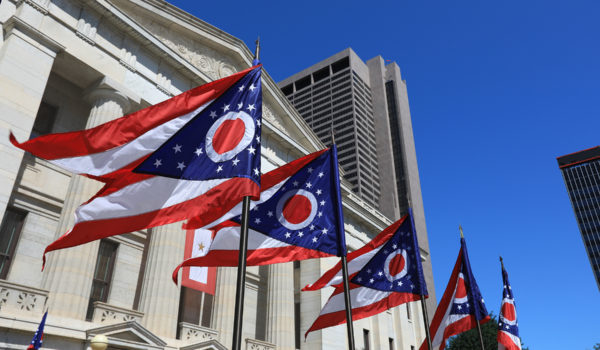On June 19, 2020, Ohio Governor Mike DeWine signed HB 164 into law. HB 164 originated in the House in 2019 as the “Ohio Student Religious Liberties Act of 2019.” After passing in the House in late 2019, where House Democrats opposed the bill, HB 164 was amended by the Senate to include accommodations for schools during the coronavirus pandemic. The Senate unanimously approved the amended bill and the House then agreed to the Senate’s amendments without change.
Because of this legislative history, HB 164 has two important sets of implications for Ohio’s schools. It largely codifies existing state and federal constitutional protections for students’ religious freedom in schools. It provides important relief and flexibility to Ohio’s schools as they seek to respond to the challenges posed by the coronavirus pandemic.
The Ohio Student Religious Liberties Act of 2019
According to Representative Timothy Ginter, one of HB 164’s sponsors, this portion of the bill was intended to codify freedoms already in the Ohio and U.S. Constitutions by allowing students to engage in religious expression in the same manner and to the same extent that students can engage in secular activities. Specifically, the law:
- Requires public schools to give students who wish to meet for religious purposes the same access to school facilities as other student groups,
- Removes a current provision of the Ohio Revised Code that permits a school district to limit religious exercises by students to lunch periods or other noninstructional time periods,
- Authorizes students to engage in religious expression before, during, and after school hours in the same manner and to the same extent as students’ secular expressions,
- Prohibits public schools from restricting a student from engaging in religious expression in the completion of homework, artwork, or other assignments, and
- Prohibits public schools from rewarding or penalizing a student based on the religious content of the student’s coursework and requires that such work be assessed using ordinary academic standards of substance and relevance, including any legitimate pedagogical concerns.
These provisions largely reflect existing constitutional protections for students’ religious freedoms in schools and likely do not substantively change the legal obligations of schools. This has led some critics of the bill to claim it is unnecessary and needlessly injects uncertainty into the legal obligations of schools, particularly as related to grading religious coursework submissions. While it is not yet clear whether or how HB 164 will impact students’ religious liberties, Ohio’s school leaders should take this opportunity to review their policies surrounding student religious expression to ensure that they comply with HB 164 and other constitutional and statutory protections for student religious liberties. Districts should specifically check their board policies to remove any provision that limits student religious expression to only lunch periods or other noninstructional times, as this is an explicit shift in Ohio law.
Coronavirus Relief and Flexibility for Ohio Schools
As amended and enacted, HB 164 also has important provisions for schools as they respond to and address the coronavirus pandemic. Of the most significant provisions, this portion of the bill:
- Caps the reduction in funding for school districts from state educational cuts to 6% of a district’s funding, which provides substantial relief to suburban districts who were disproportionately affected by the $300 million in state education cuts and to rural school districts in Southern Ohio whose funds were impacted by property tax devaluations of nearby power plants,
- Provides schools flexibility for conducting teacher and principal evaluations for the 2019-2020 and 2020-2021 school years,
- Permits students to use their final course grades in lieu of an exam score to satisfy conditions for obtaining a high school diploma,
- Prohibits a school from retaining a student in third grade under certain conditions if the student does not attain a passing score on the fall administration of the third grade English language arts achievement assessment,
- Exempts public schools from having to establish reading improvement plans for the 2020-2021 school years based on assessment results from the 2019-2020 school year,
- Permits personnel providing professional services to student with disabilities to provide services electronically or via telehealth communication for the 2019-2020 and 2020-2021 school years,
- Permits schools that have not been approved to use a “blended” learning model for the 2020-2021 school year to adopt a plan to provide instruction using a “remote” learning model, and
- Permits schools under certain conditions to employ or reassign a licensed teacher to teach a subject area or grade level for which the teacher is not licensed for the 2020-2021 school year.
These provisions provide schools much needed flexibility, stability, and continuity as they respond to the challenges of the coronavirus.
you have questions about these changes or if you would like more information about students’ religious liberties or HB 164, please contact Joe Scholler, Alex Ewing, Dr. Christopher Thomas, or any member of Frost Brown Todd’s Government Services practice group.

